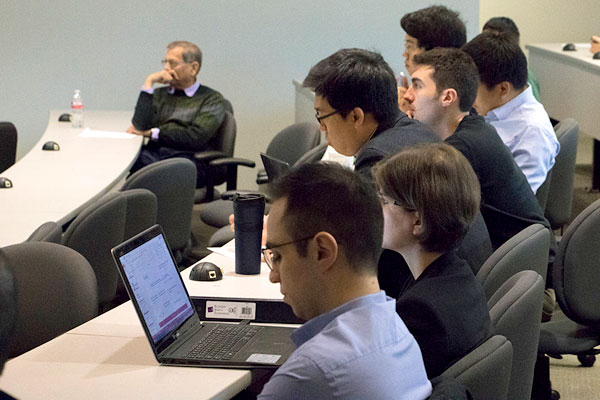Innovating Education through Research: A Comprehensive Guide to Ph.D. Programs in Educational Technology
Innovation is essential to the growth and improvement of any industry, and the field of education is no exception. With the ever-evolving technology landscape, it is crucial for educational institutions to keep up with the latest advances and implement them in the classroom to improve student learning outcomes. This is where educational technology (EdTech) comes in, providing educators with the tools and resources to enhance the learning experience for students.
A Ph.D. in Educational Technology is a valuable asset for individuals looking to make a difference in the field of education through research and innovation. The program equips students with the skills and knowledge necessary to develop and implement technology-based solutions to improve teaching and learning outcomes.
If you’re interested in pursuing a Ph.D. in Educational Technology, this comprehensive guide will provide you with all the information you need to make an informed decision. We’ll discuss the benefits of pursuing this degree, the prerequisites and requirements for admission, the curriculum, and potential career paths after graduation.
- Analyze current research in the field of educational technology
Analyzing current research in the field of educational technology is a critical component of any Ph.D. program in Educational Technology. Through a comprehensive review of existing literature, Ph.D. students can gain a deeper knowledge of the latest educational technology trends, and the impact that technology is having on the learning experience. When conducting research, Ph.D. students are encouraged to approach the subject methodically and systematically, engaging with a wide range of peer-reviewed sources across multiple disciplines. By conducting rigorous and comprehensive research, students can ensure that their work contributes meaningfully to the field of educational technology and advances our collective knowledge of how technology can be integrated into the educational experience to improve outcomes for students of all ages.
- Examining the available Ph.D. programs
When considering pursuing a Ph.D. in Educational Technology, one of the first steps is examining the available programs to find the best fit for your career goals and research interests. This can be a daunting task, as there are many options available, each with their own unique strengths and specializations. However, taking the time to research and compare programs can help ensure that you select the right program to meet your needs. Some factors to consider when examining available Ph.D. programs in Educational Technology include the program’s research focus, faculty expertise and experience, program requirements, location, and the availability of funding or scholarships. By carefully evaluating these factors, you can feel confident in selecting a program that will provide you with the knowledge, skills, and resources necessary to succeed in a career in Educational Technology research.
- Critically evaluating the requirements for the degree program
As you consider pursuing a PhD Educational Technology program, it’s crucial to carefully evaluate the degree requirements of various programs. The first step in this process involves identifying your career aspirations and determining how each program can help you develop the skills and knowledge necessary to achieve your goals. Next, it’s important to assess the rigor and breadth of the curriculum in each program to determine whether it will meet your intellectual interests and academic objectives. You should also consider the program’s research requirements, including the availability of research assistant positions, frequency of research presentations, and research resources such as libraries, research labs, and training opportunities. This critical assessment of program requirements will allow you to choose a program that aligns with your educational and career aspirations and offers opportunities for professional growth and development.
In conclusion, pursuing a Ph.D. in Educational Technology can lead to a fulfilling and rewarding career path in the field of education. The comprehensive guide we discussed provides an overview of top programs around the world, allowing prospective students to make informed decisions about their academic journey. These programs offer opportunities to learn from leading researchers and scholars, conduct original research, and make meaningful contributions to the field of education. With advances in technology and the growing need for innovative approaches in education, a Ph.D. in Educational Technology can prepare graduates to make a lasting impact on the future of learning.


Comments are closed.